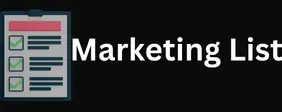Understanding Text Message Marketing for Small Business Success
Text message marketing offers huge potential for small businesses. It allows direct connection with customers. SMS campaigns are powerful and personal. Businesses seek effective growth tools. High open rates ensure messages are seen quickly. Quick delivery means immediate engagement. This direct channel builds strong customer relationships. Small businesses need cost-effective methods. Text messaging is often affordable. It drives immediate action. Businesses can promote offers, updates, and events directly. Building an SMS list responsibly is crucial. Gaining customer consent is always the first step. Offer clear incentives for opting in. Use calls to action on your website. In-store promotions also work well. Increased sales are a primary goal. Improved customer loyalty is another key benefit. Small businesses can compete effectively. Text messages cut through digital noise. They create a sense of urgency for customers.
Strategic SMS Use for Enhancing Small Business Outreach
Effective SMS marketing needs a clear plan. Segment your customer list carefully. Send relevant and targeted messages to each group. Personalization boosts engagement significantly. Always avoid sending too many messages. Respect customer privacy at all times. Timing messages correctly is very important. A well-timed offer converts better. Consider customer purchase history. Think about their past interactions with your brand. Promotional campaigns can include special discounts. Announce new product arrivals promptly. Promote flash sales effectively. Drive foot traffic directly to your store. Increase online website visits. SMS can remind customers of abandoned carts. It can also encourage repeat purchases. Acquiring relevant contact information is vital. Businesses often explore various data sources. For specialized needs, considering comprehensive data can be useful. For example, obtaining belize telemarketing data might help some specific targeting. Such data can aid in niche market outreach. It supports building a robust contact list for SMS.
Maximizing Engagement Through Small Business SMS Campaigns
Engagement is key for campaign success. Use clear and concise language. Keep messages short and impactful. Always include a strong call to action. Tell customers exactly what to do next. “Shop Now” or “Visit Us Today” are strong examples. Use engaging visuals if possible. Though SMS is text-based, links to images work. Always get explicit consent for messages. Explain what subscribers will receive. Make opting out easy and clear. This builds trust with your audience. Compliance with regulations is essential. Respecting choices maintains a positive brand image. SMS works best with other marketing efforts. It complements email campaigns. It supports social media outreach. Use SMS for urgent announcements. Email can provide more detailed information. A combined approach yields stronger results. For instance, an expert email list service can significantly amplify your marketing reach. To truly Maximize Reach and Revenue with an Expert Email List Service, integrate it. This synergy creates a powerful marketing ecosystem. SMS can drive traffic to email sign-up pages. Email can promote SMS opt-in campaigns. Both channels build customer relationships effectively.
Measuring SMS Campaign Success for Small Business Growth
Tracking results is crucial for improvement. Monitor key performance indicators (KPIs) closely. Open rates show message visibility. Click-through rates indicate engagement levels. Conversion rates measure actual sales achieved. Understand which messages perform best. Learn preferred sending times for your audience. Identify customer segments that respond most. Use A/B testing for messages. Test different offers or calls to action. Adjust strategies based on data insights. Continuous optimization leads to better outcomes. SMS marketing can be highly efficient. It offers a strong return on investment. Compared to traditional advertising, costs are lower. The direct nature minimizes wasted spend. Small businesses can start with small budgets. Scaling up is easy as results grow. This makes it ideal for startups. It provides a direct and immediate communication channel. This helps businesses connect personally.
Implementing Effective Small Business SMS Strategies for Future Growth
Start with a clear objective in mind. Define what you want to achieve with SMS. Set up your chosen SMS platform. Choose a reliable service provider for support. Import your compliant contact list carefully. Create engaging message templates that resonate. Schedule your first campaign thoughtfully. Test messages before sending widely. Always monitor delivery rates closely. Ensure your messages are reaching their target audience. Do not spam your customers at any time. Irrelevant messages lead to quick unsubscribes. Avoid sending messages too late at night. Respect differing time zones for your audience. Do not use overly complex language. Keep your messages clear and simple for everyone. Always ensure legal compliance with regulations. Follow all SMS marketing guidelines strictly. Avoid making false promises to customers. Maintain transparency in all communications. Expect more advanced personalization in the future. AI-driven message optimization will grow. Two-way conversational SMS will become common. Chatbots integrated with SMS are emerging. These trends offer new opportunities. Small businesses can stay competitive. Adapting early provides a significant edge. SMS remains a vital communication tool. It will continue to evolve and offer new features. Geolocation-based messaging is another growing area. It allows targeted local promotions effectively. This enhances relevancy for local businesses significantly.
Text message marketing is undeniably powerful. It drives engagement and sales efficiently. Small businesses gain a direct line to customers. Embrace this effective communication channel.
